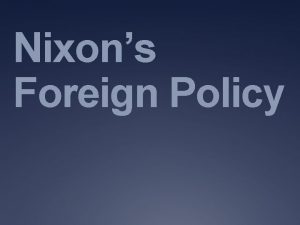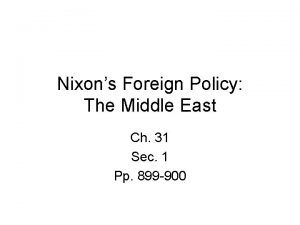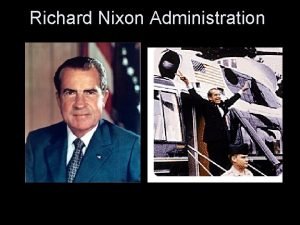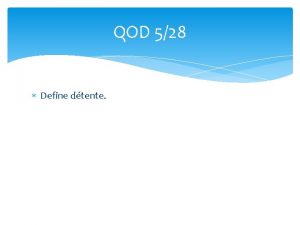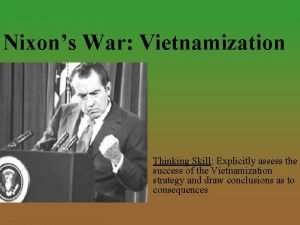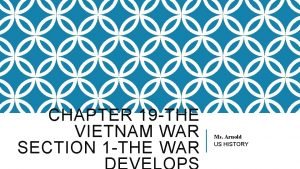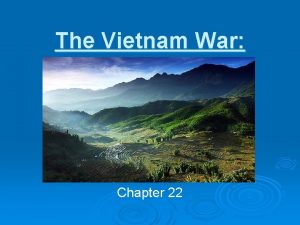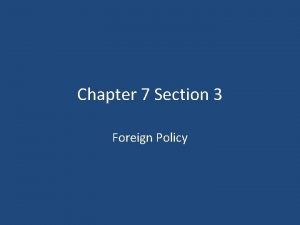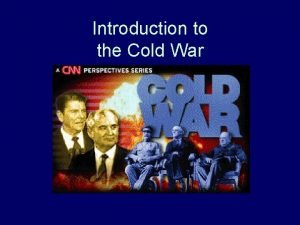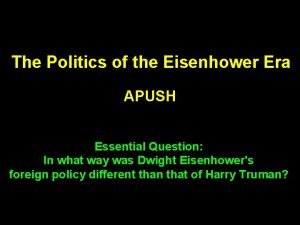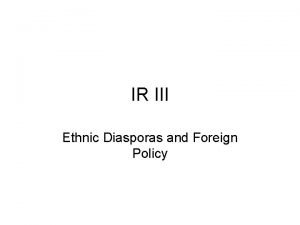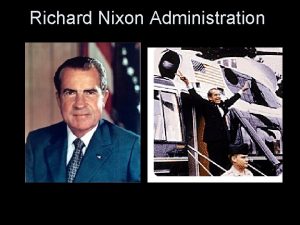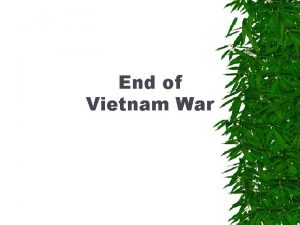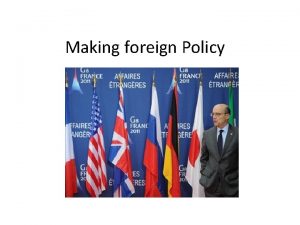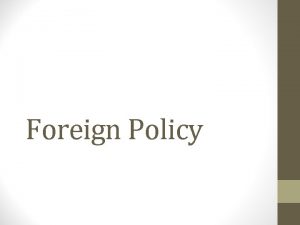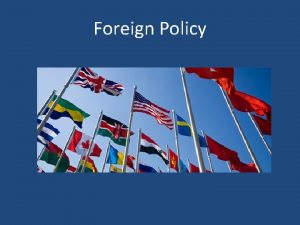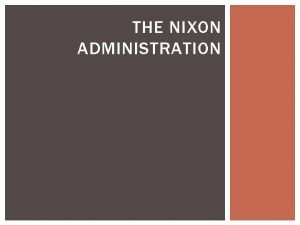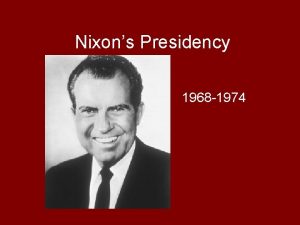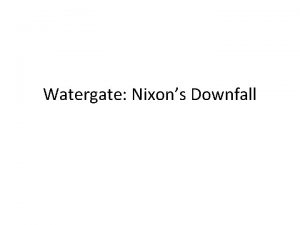Nixons Foreign Policy Vietnamization Policy to end US














- Slides: 14

Nixon’s Foreign Policy

Vietnamization Ü Policy to end US involvement in the war Ü “Expand, equip, and train South Vietnam’s forces and assign them to an ever-increasing combat role, at the same steadily reducing the number of U. S. combat troops. ” Ü Campaigned on this idea and ending the war Ü Americans are very happy

The Invasion of Cambodia Ü Purpose was to disrupt the North Vietnamese supplies lines and bomb/destroy Viet Cong base camps Ü Announced by Nixon on April 30, 1970 Ü https: //www. youtube. com/watch? feature=player_embedded&v=r. D Ss. DBie. VGE Ü In reality, Nixon had been ordering bombings on Cambodia for months before actual invasion declaration Ü Americans felt betrayed and shocked Ü As a result, peaceful and violent protests erupted all over the county

Kent State Massacre Ü Occurred at Kent State University – Protest in response to Cambodian Invasion Ü Involved the shooting of unarmed college students by the Ohio National Guard on Monday, May 4, 1970. Ü Guardsmen fired 67 rounds over a period of 13 seconds, killing four students and wounding nine others, one of whom suffered permanent paralysis. Ü Some of the students who were shot had been protesting the Cambodian Campaign, which President Richard Nixon announced during a television address on April 30. Ü Other students who were shot had been walking nearby or observing the protest from a distance.




War Powers Resolution of 1973 Ü Given in response to Invasion of Cambodia Ü Requires president to notify Congress within 48 hours of committing armed forces to military action Ü Forbids armed forces from remaining for more than 60 days, with a further 30 day withdrawal period, without the authorization of the use of military force or declaration of war Ü Passed over Nixon’s veto

Détente Ü Look up this definition in your book. Ü After reading through the definition, put it in your own words. What is détente?

Opening Relations with China Ü http: //www. cfr. org/world/lessons-learned-richard- nixon-goes-china/p 27369 Ü As you watch this clip, jot down notes on Nixon’s efforts to build relations with China AND the role diplomacy plays in Foreign Affairs.

SALT I Agreement Ü May 1972 Ü Talk between the US and Soviet Union Ü Led to an anti-ballistic missile treaty (reducing arms) Ü This is the first step towards slowing down the building of Nuclear Weapons.

Watergate Ü As you watch the video, answer the questions in your notes. Ü https: //www. youtube. com/watch? v=IHnmriy. XYeg

Watergate Primary Source Ü Read the document with a partner. . . Ü Jot notes on arguments of why Nixon is guilty and why he is innocent. Ü Write your own opinion in the space provided. . . Ü Wait to take notes on what actually happened. . .

What actually happened. . . Ü Nixon resigned before the Senate took it to a vote. . . so he was NOT impeached. Ü Why do you think Nixon Resigned? Ü What does this suggest/imply?
 Nixons foreign policy
Nixons foreign policy Nixons foreign policy
Nixons foreign policy Nixons foreign policy
Nixons foreign policy Nixons foreign policies
Nixons foreign policies Vietnamization apush
Vietnamization apush Vietnamization
Vietnamization President nixon endorsed vietnamization because
President nixon endorsed vietnamization because Vietnamisation
Vietnamisation Chapter 22 section 5 the end of the war and its legacy
Chapter 22 section 5 the end of the war and its legacy So here you are too foreign for home
So here you are too foreign for home Foreign policy vocabulary
Foreign policy vocabulary Conclusion of foreign policy
Conclusion of foreign policy Apush eisenhower
Apush eisenhower Hitler's foreign policy timeline
Hitler's foreign policy timeline Actors in foreign policy
Actors in foreign policy
